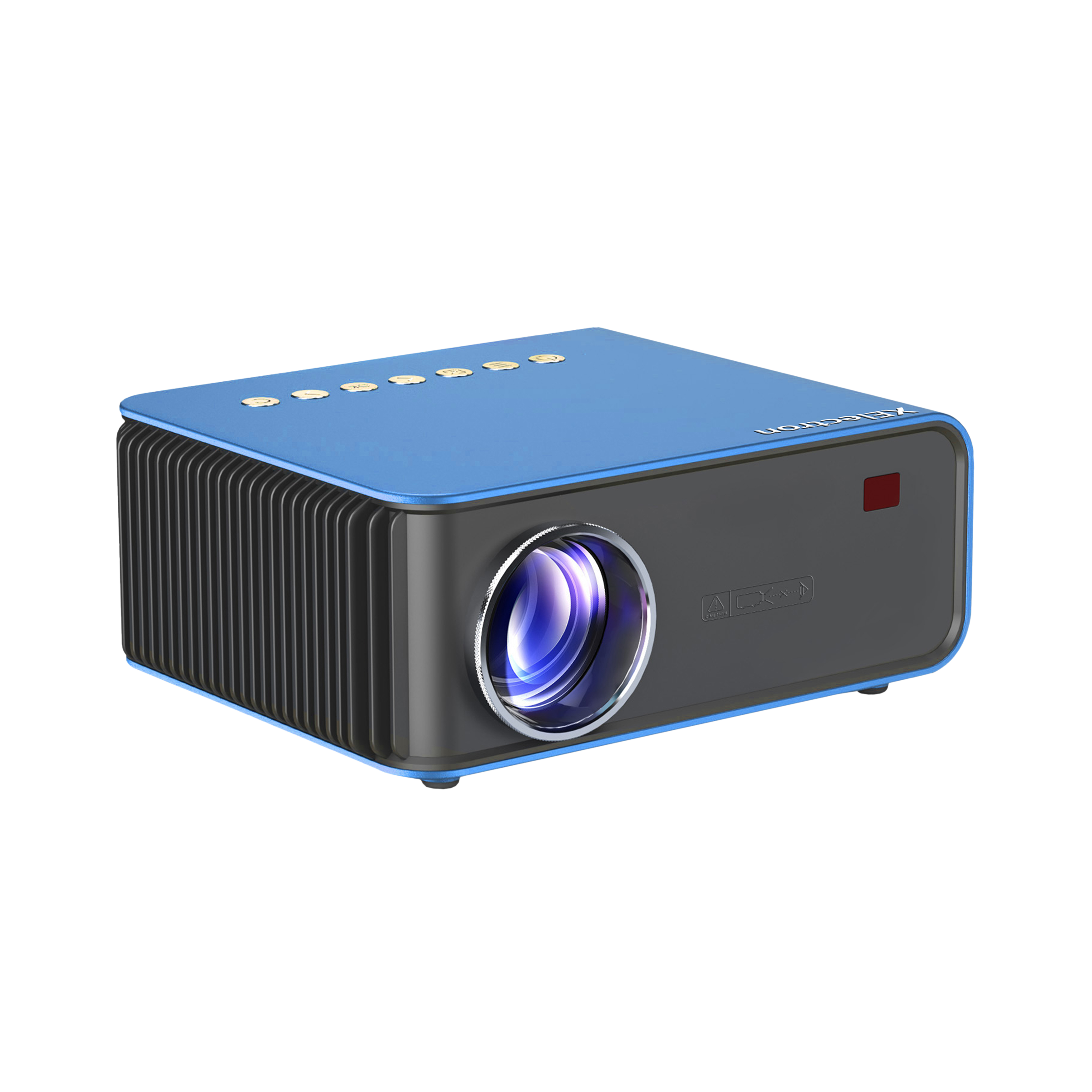We have already seen the best way to bring a cinema-level TV experience to home and how to build a home theatre experience with the best audio and video devices. However, if you want the biggest screen for viewing, then a projector is the way to go. Like any other electronic device, choosing the right projector is not that easy, and while projector resolution – 4K vs Full HD – must be considered, here is everything else you need to know before buying one.
1080p HD projector vs 4K projector: Key differences
While the terms 4K, Full HD or 1080p refer to the resolution of the output device, it isn’t the only difference. When you move from 1080p to 4K, you not only get four times as many pixels as Full HD but you will also see a noticeable difference in image clarity.
Here are the key differences to know between a 4K and a 1080p projector
Resolution
This is the most basic difference between a 4K and a Full HD projector. Resolution refers to the number of pixels used to create the projected image. With a 1080p projector, you get a resolution of 1920 x 1080 pixels and it results in over 2 million pixels per image. A 4K projector, on the other hand, offers a much higher resolution of 3,840 x 2,160 pixels.
ALSO READ: Different types of projectors based on technology and applications
With a 4K projector, you essentially get over 8 million pixels per image, which is four times as many pixels as a 1080p image. More pixels in an image leads to improved clarity and details, and a higher resolution projector will project images with less pixelation and finer details.
Sharper detail
The difference between a good image and a bad image is not just restricted to its pixels. It is also important to see whether it retains details, and the higher resolution of the 4K projector allows it to deliver a sharper, more detailed image than a 1080p projector. This means you will be able to discern finer details in images, videos and texts compared to a 1080p projector and images will also be less pixelated.
This is similar to switching from a 1080p TV to a 4K TV where you are suddenly able to see elements like hair, textures of a fabric, or elements like water droplets on leaves. On a 4K projector, whether you are watching sports, playing video games, or scrolling through images, everything will look sharper.
Screen size
You must have heard that higher resolution looks better on a larger screen and that applies to projectors as well. For screen sizes under 100 inches, you can opt for 1080p resolution while the benefits of a 4K projector will become evident as you choose a projection of 100 inches or more. There are proven benefits to choosing a 4K resolution for screen sizes above 100 inches since it remains comfortable on the eyes even if you sit closer to the projected image.
Full HD projector: Benefits of 1080p projectors
Now that you know the key difference between a Full HD and 4K projector, here are the benefits or advantages of a Full HD projector:
Affordability
The biggest advantage of choosing a Full HD projector is its price. They are considerably more affordable than 4K projectors and will thus serve well those on a tighter budget. As the technology has matured, even affordable 1080p projectors offer good colour accuracy, brightness, and contrast for an immersive viewing experience.
Ideal for small-screen
A 1080p projector is also ideal if your output screen size is less than 100 inches. When you sit further away from the screen, the bump in resolution is less noticeable and the resulting pixels and level of detail are still pleasant for the home viewing experience.
Content
While 4K has made major strides, there is no lack of Full HD or 1080p content to watch on a 1080p projector. The abundant library of movies, TV shows, and games make Full HD projectors a great investment even if TV makers seem to move away from 1080p resolution.
4K projector: Benefits
Here are some of the benefits offered by an Ultra HD 4K projector:
Larger screen sizes
The biggest advantage of choosing a 4K projector is that you can project screen sizes larger than 100 inches. The higher resolution allows them to look immersive on a large screen and deliver a true home theatre experience. Some 4K laser projectors allow users to create a massive 200-inch image without affecting the clarity or picture quality.
HDR content
With over 8 million pixels at your disposal, a 4K projector delivers lifelike images. However, their advantage can be seen with HDR content or high dynamic range content.
ALSO READ: 5 best projectors for homes and offices in India
Since many 4K projectors support HDR out of the box, they are able to display a wider range of colour, contrast, and brightness levels, and this means you won’t be struggling to see the picture even if your favourite TV show is shot in extremely low-light conditions.
Future-proof
If a 1080p projector resembles an abundance of available content then a 4K projector is the way to future-proof yourself. As streaming becomes dominant compared to broadcast and other traditional mediums, access to the 4K content library is also fast growing. With a 4K projector, you are preparing yourself for a shift where every available content is 4K by default and you don’t have to worry about downscaled images.
When it comes to 4K vs Full HD projectors, both have their clear strengths. A Full HD or 1080p projector is best suited for those on a budget or looking for a decent performance while projecting to a smaller screen size. A 4K projector delivers an incredible high level of detail and clarity and is best suited for screen sizes larger than 100 inches.
The choice between the two boils down to the ideal screen size, viewing environment, and content you will be watching within your desired budget.
Unleash your inner geek with Croma Unboxed
Subscribe now to stay ahead with the latest articles and updates
You are almost there
Enter your details to subscribe

Happiness unboxed!
Thank you for subscribing to our blog.
Disclaimer: This post as well as the layout and design on this website are protected under Indian intellectual property laws, including the Copyright Act, 1957 and the Trade Marks Act, 1999 and is the property of Infiniti Retail Limited (Croma). Using, copying (in full or in part), adapting or altering this post or any other material from Croma’s website is expressly prohibited without prior written permission from Croma. For permission to use the content on the Croma’s website, please connect on contactunboxed@croma.com
- Related articles
- Popular articles



















Karthekayan Iyer
Comments